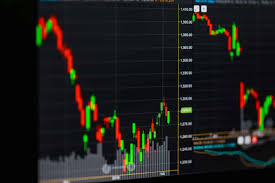- by 横川光恵
- 2025年10月31日
Understanding Forex Trading Signals Your Path to Successful Trading

In the rapidly evolving world of financial trading, forex trading signal Forex Vietnam acts as a beacon for many aspiring traders. Forex trading signals have garnered significant attention among traders for their potential to maximize profits and minimize losses. This article will dive deep into what Forex trading signals are, their types, their benefits, and how they can be integrated into your trading strategy effectively.
What are Forex Trading Signals?
Forex trading signals are trade ideas generated by market analysis, statistical methods, or algorithmic trading systems. These signals provide traders with recommendations regarding when to buy or sell a currency pair, and they typically include information about entry and exit points, stop-loss levels, and take-profit levels.
Types of Forex Trading Signals
The landscape of Forex trading signals can be divided into three main types:
1. Manual Signals
Manual signals are generated by professional traders or analysts who analyze chart patterns, market trends, and other economic indicators. They provide a more personalized touch and can reflect the trader’s experience and intuition.
2. Automated Signals
Automated signals are produced by trading algorithms or software that analyze market data automatically. These systems can process vast amounts of data quickly and make trade recommendations based on specific parameters set by the user.
3. Social Trading Signals
Social trading signals arise from platforms that allow traders to share their trading ideas and strategies with each other. Traders can follow successful traders and mimic their strategies, creating a collaborative trading environment.
Benefits of Using Forex Trading Signals
- Time-Saving: Forex trading signals can save traders significant time by eliminating the need for constant market analysis and research.
- Informed Decisions: Signals provide data-driven insights and recommendations, allowing traders to make informed decisions.
- Risk Management: Most signals include stop-loss and take-profit points, which assist in managing risk effectively.
- Emotional Control: Following signals can prevent emotional decision-making, which is a common pitfall for many traders.
How to Choose the Right Forex Trading Signal Provider
With numerous options available in the market, selecting the right Forex trading signal provider can be challenging. Here are some factors to consider:
1. Track Record
Research the provider’s performance history. Look for transparency in their results, and check for reviews or testimonials from other users.

2. Signal Accuracy
Assess the accuracy rate of the signals provided. Some providers may offer signals with high accuracy, while others may have a less favorable record.
3. Cost
Consider the pricing model. Some providers offer free signals, while others charge a subscription fee. Ensure that the cost is justified by the quality and frequency of the signals provided.
4. Support and Education
Choose a provider that offers robust customer support and educational resources. A good provider will empower you with the knowledge to understand the signals better.
Integrating Trading Signals into Your Strategy
To successfully incorporate Forex trading signals into your strategy, consider the following:
1. Use Signals as a Complement
Don’t rely solely on signals; instead, use them to complement your own analysis. Conduct your market research and use signals to validate your findings.
2. Stay Disciplined
Adopt a consistent approach when following signals. Avoid jumping between different strategies or second-guessing your decisions.
3. Keep a Trading Journal
Maintain a journal documenting the signals you follow, your entry and exit points, and the outcomes. This practice will help you evaluate the effectiveness of the signals over time.
Conclusion
Forex trading signals can be a valuable tool for both novice and experienced traders. They offer a streamlined way to navigate the complex Forex market, balancing time management with informed decision-making. By understanding the different types of signals and integrating them effectively into your trading strategy, you can enhance your trading performance and potentially increase your profitability.
Whether you choose to follow manual, automated, or social trading signals, remember that successful trading requires a blend of analytical skills, market knowledge, and the discipline to adhere to your strategy. With the right approach and tools, Forex trading signals can pave the way to a successful trading journey.